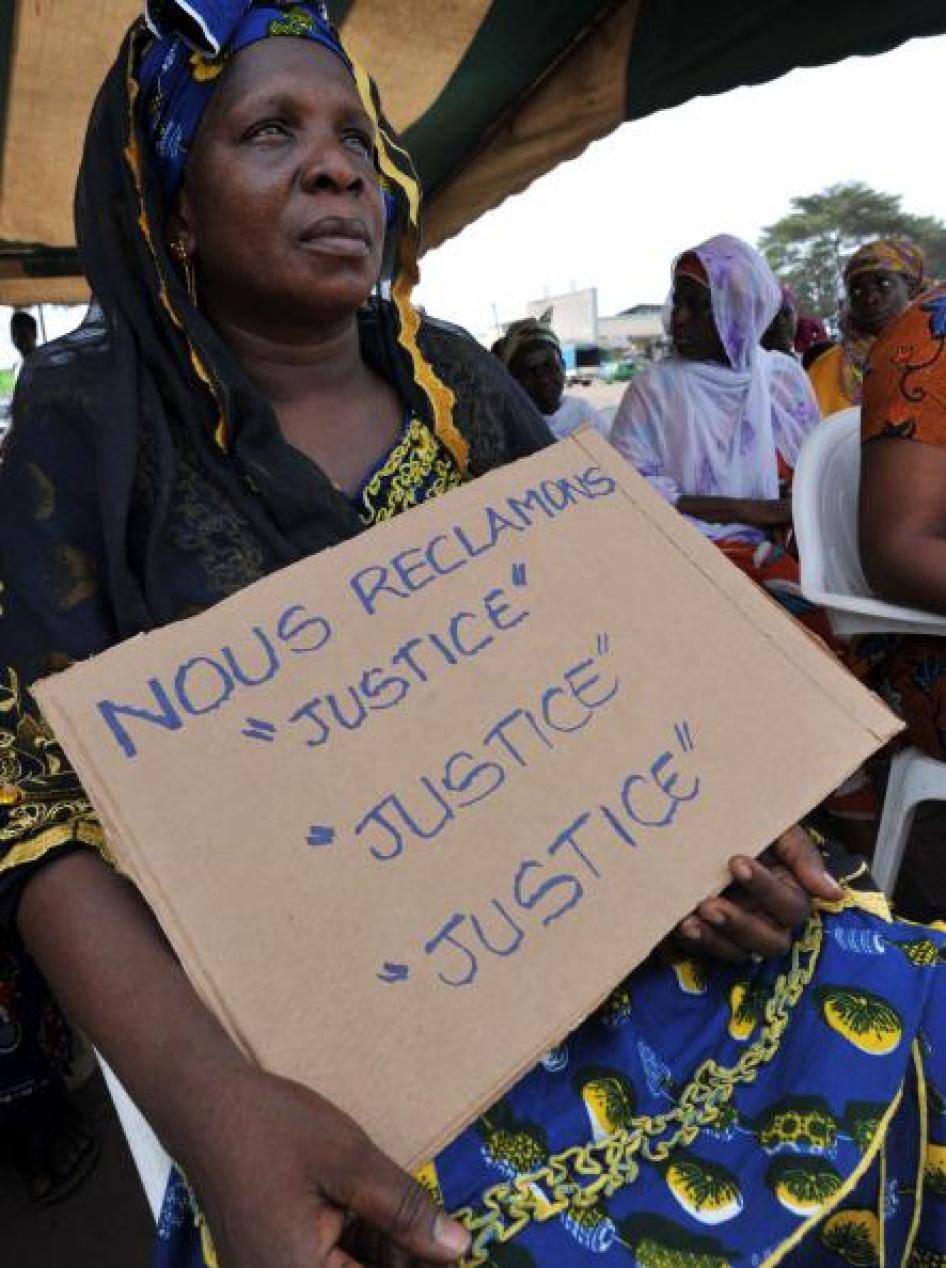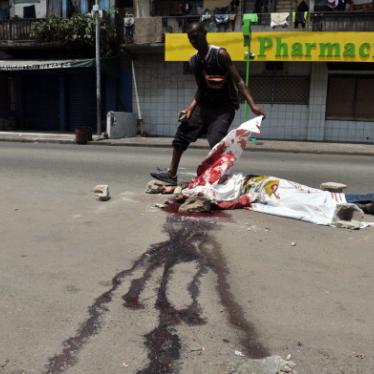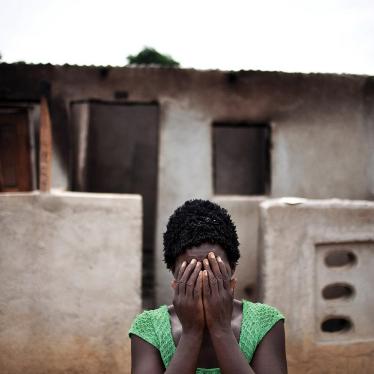Countries participating in the United Nations review of Côte d’Ivoire’s human rights record should question the government’s failure to deliver justice to victims of 2010-11 post-election abuses, Human Rights Watch said today. On May 7, 2019, Côte d’Ivoire will undergo its third Universal Periodic Review (UPR) before the UN Human Rights Council in Geneva.
In August 2018, President Alassane Ouattara announced an amnesty for crimes committed during the country’s 2010-11 crisis. The amnesty, though only applicable to certain crimes, effectively halted prosecutions in Côte d’Ivoire of military and political leaders implicated in war crimes, crimes against humanity, and other serious human rights abuses.
“The lack of justice for thousands of victims of one of Côte d’Ivoire’s worst episodes of political violence is a stain on the government’s rights record and threatens the country’s peace and stability,” said Corinne Dufka, West Africa director at Human Rights Watch. “Countries at the UN review should ask why President Ouattara’s administration has ignored victims’ calls for justice.”
The UN review process allows UN member countries to scrutinize each country’s human rights record every five years and make recommendations for improvement.
The 2010-2011 crisis began when then-President Laurent Gbagbo refused to cede power to Ouattara after the November 2010 presidential elections. The crisis followed more than a decade of political instability and violence, during which the failure to investigate and prosecute those implicated in serious human rights violations appeared to be a key factor in perpetuating new abuses. At least 3,000 people were killed during the 2010-11 crisis and more than 150 women raped, with members of the armed forces on both sides targeting civilians.
The Ivorian government, in its own report ahead of the UN review, said that “it has engaged in the fight against impunity by the creation of…a special investigation unit (Cellule spéciale d’enquête (CSE)) tasked with judicial investigations relating to the post-election crisis.”
However, while the unit has conducted wide-ranging investigations and filed dozens of criminal charges, few of those facing the most serious charges have been brought to trial.
Since 2011, the special investigation unit has charged more than 150 people, including both Gbagbo and Ouattara allies, with war crimes, crimes against humanity, and other serious human rights abuses. More than 20 people from the Gbagbo-era security forces, for example, have been indicted for the suppression of protests in Abidjan in 2010 and 2011. About 20 members of pro-Ouattara forces have been charged in relation to an attack on Duékoué in March 2011 in which more than 300 people were killed.
The only trial in Ivorian courts for war crimes or crimes against humanity, however, has been that of the former first lady, Simone Gbagbo, who was acquitted in March 2017. She was serving a 20-year sentence from another 2015 conviction when the amnesty was announced and was released in August 2018.
In its response to a report by Amnesty International ahead of the UPR process, the Ivorian government stated on February 12 that:
The government would like to reaffirm that the amnesty measure of August 6, 2018 doesn’t mean impunity…. [The amnesty] excludes individuals on trial before an international criminal court and members of the military or armed groups. The worst crimes having been committed by these individuals, one cannot seriously claim that Côte d’Ivoire is denying victims their right to truth and justice.
Despite this statement, however, none of the most senior military leaders or militia commanders from either pro-Gbagbo or pro-Ouattara forces have been tried for grave international crimes. At least three army commanders indicted by the special investigation unit were given new positions in the Ivorian military on March 6. In April, three human rights groups filed suit against the 2018 amnesty in Côte d’Ivoire’s Supreme Court, contending that the amnesty violated the government’s obligations to investigate and prosecute human rights abuses under international human rights law.
The need for justice in Côte d’Ivoire is particularly urgent given the challenges that the Office of the Prosecutor of the International Criminal Court (ICC) has faced in its response to the 2010-11 post-election crisis. ICC judges dismissed crimes against humanity charges against Laurent Gbagbo and a close ally, Charles Blé Goudé, on January 15, although the prosecution may appeal that decision once judges issue a fully reasoned decision. The prosecutor has not brought any charges against the pro-Ouattara commanders whose forces were implicated in killings and rape during the post-election violence.
Countries at the UPR should urge the Ivorian government to pass additional legislation making clear that the amnesty does not apply to anyone implicated in war crimes or crimes against humanity, Human Rights Watch said. They should also query how Ouattara’s administration will give the Ivorian judiciary the support necessary to expeditiously bring to trial those military and political leaders under indictment for war crimes or crimes against humanity.
“As Côte d’Ivoire prepares for presidential elections in 2020, the failure to deliver justice to victims of the 2010-11 crisis means that many people credibly implicated in crimes remain in power,” Dufka said. “The UN review process provides a public platform for governments to weigh in on the importance of holding to account those implicated in grave international crimes.”









